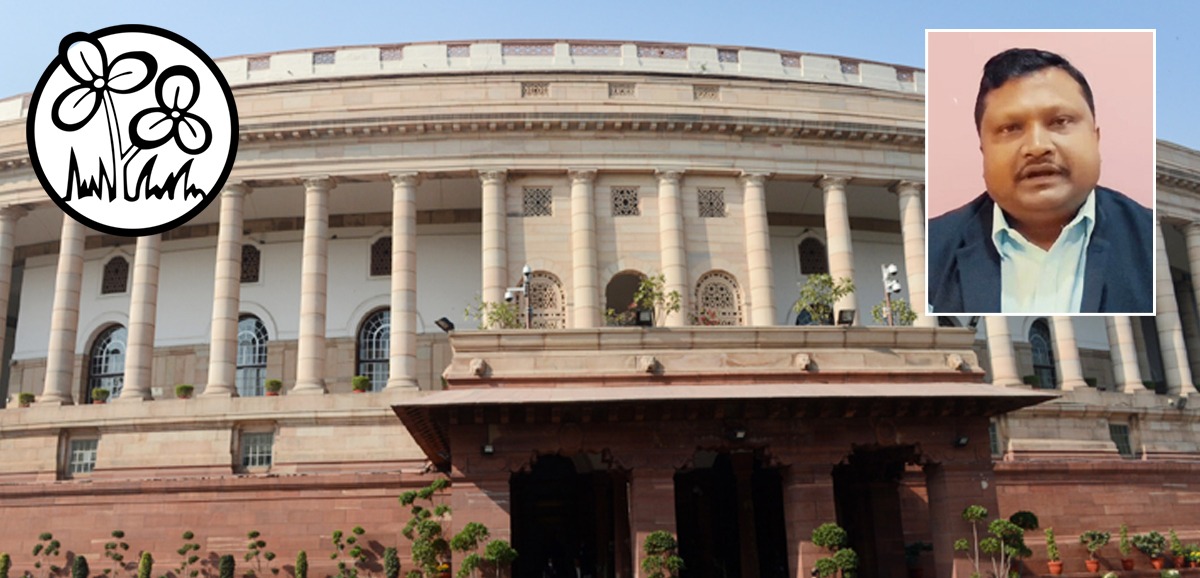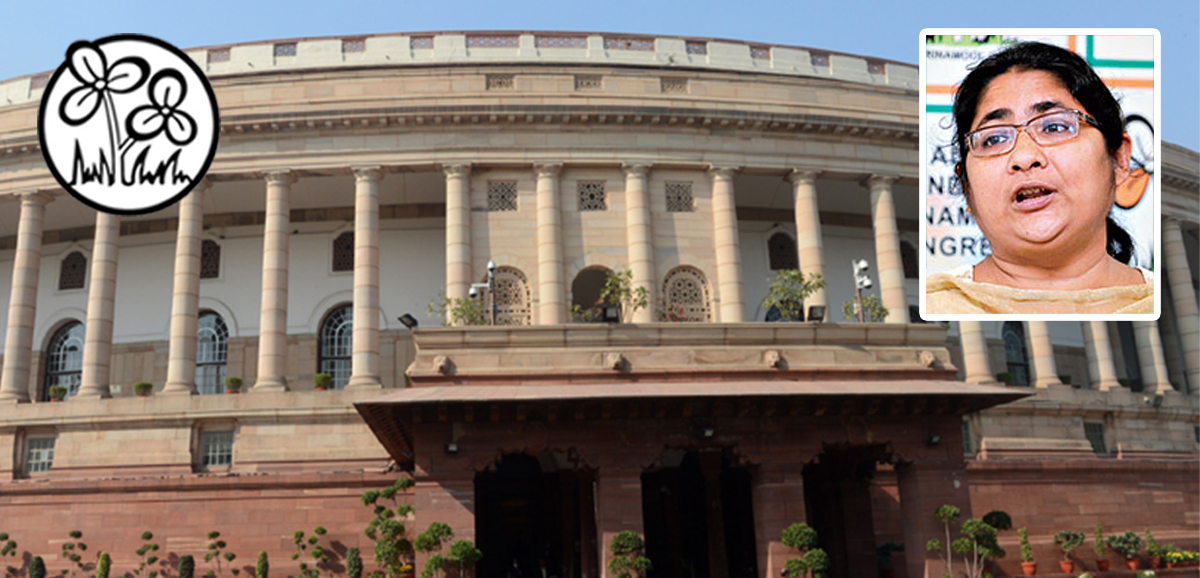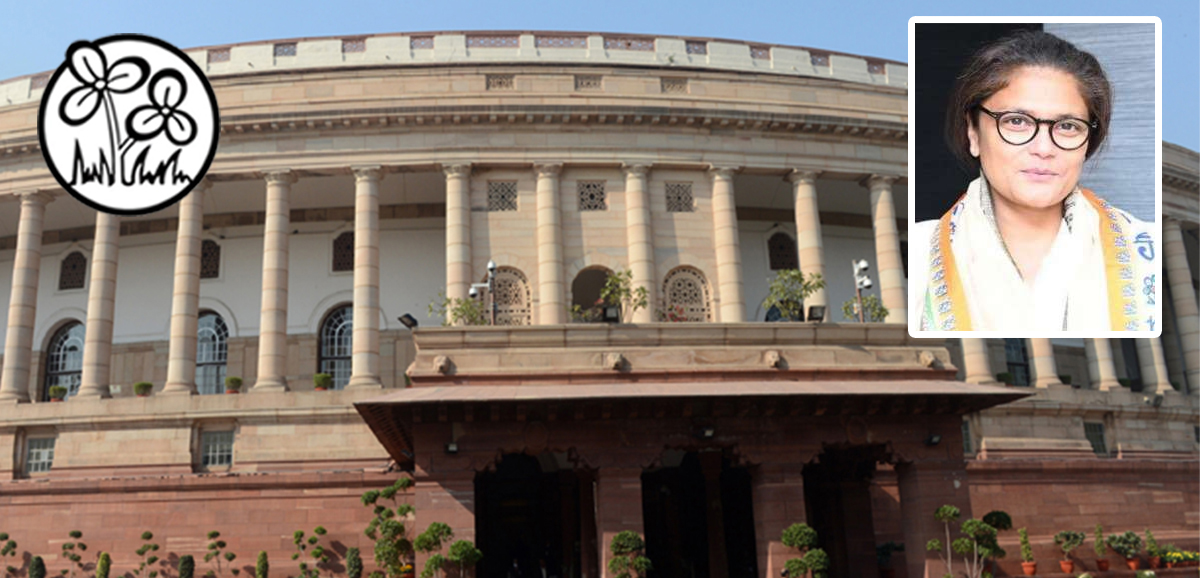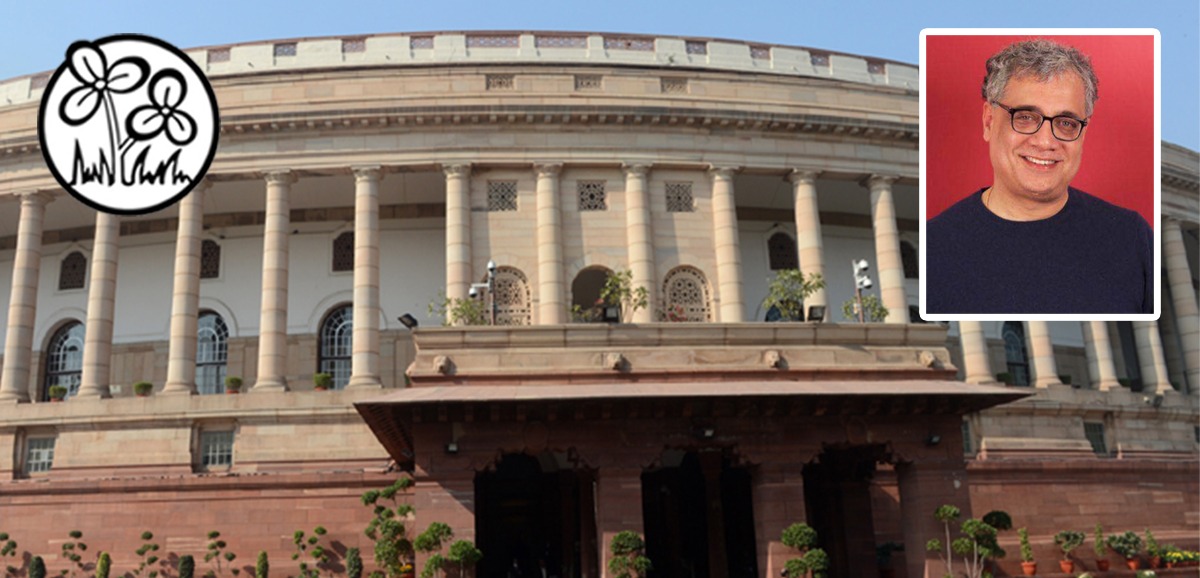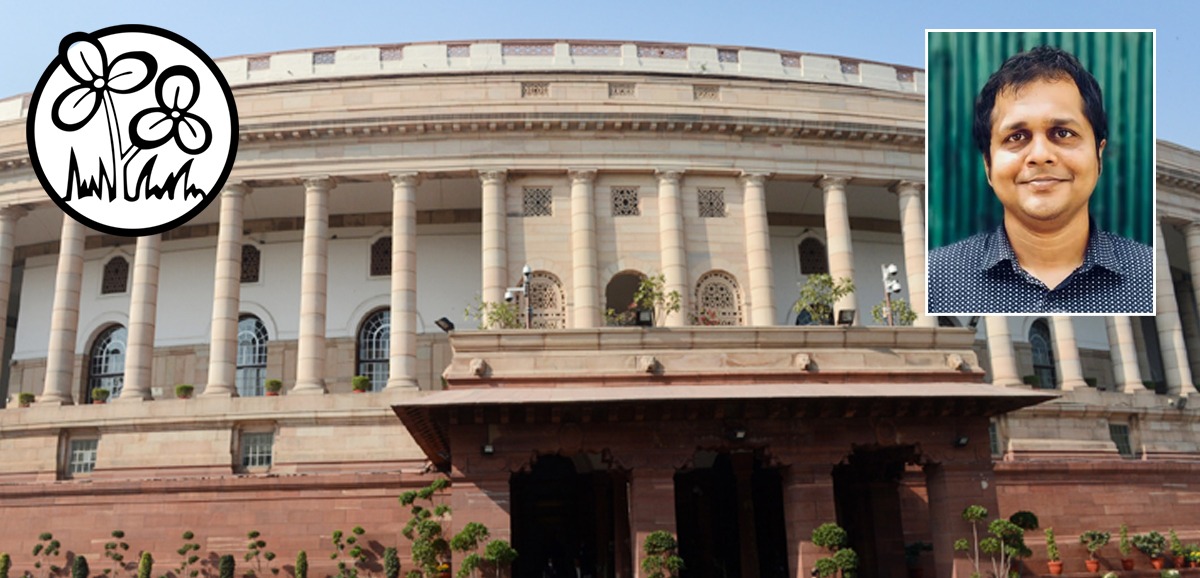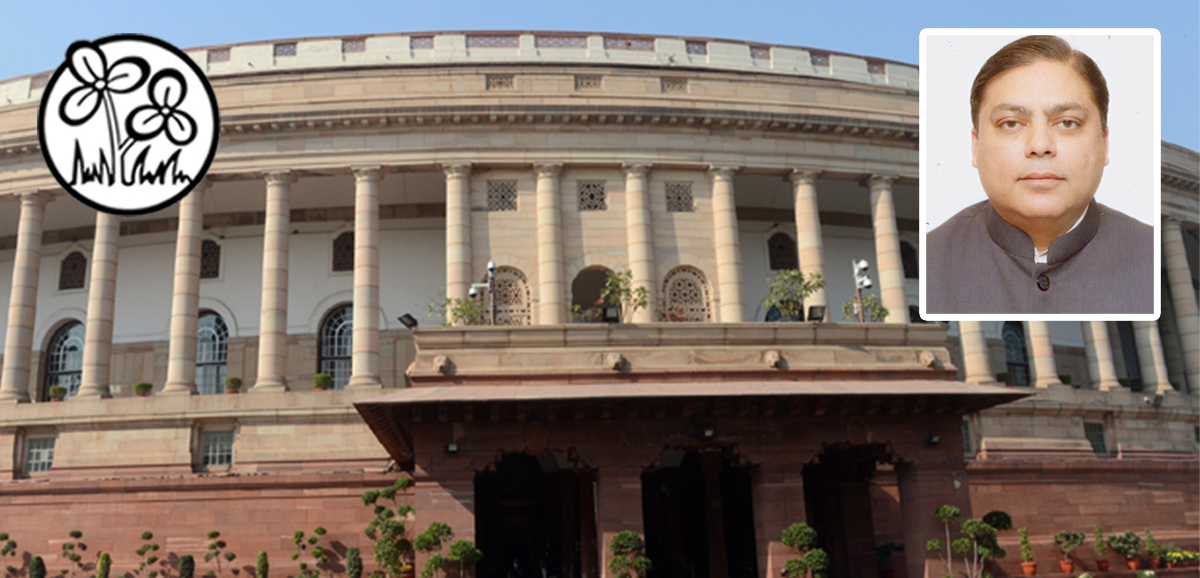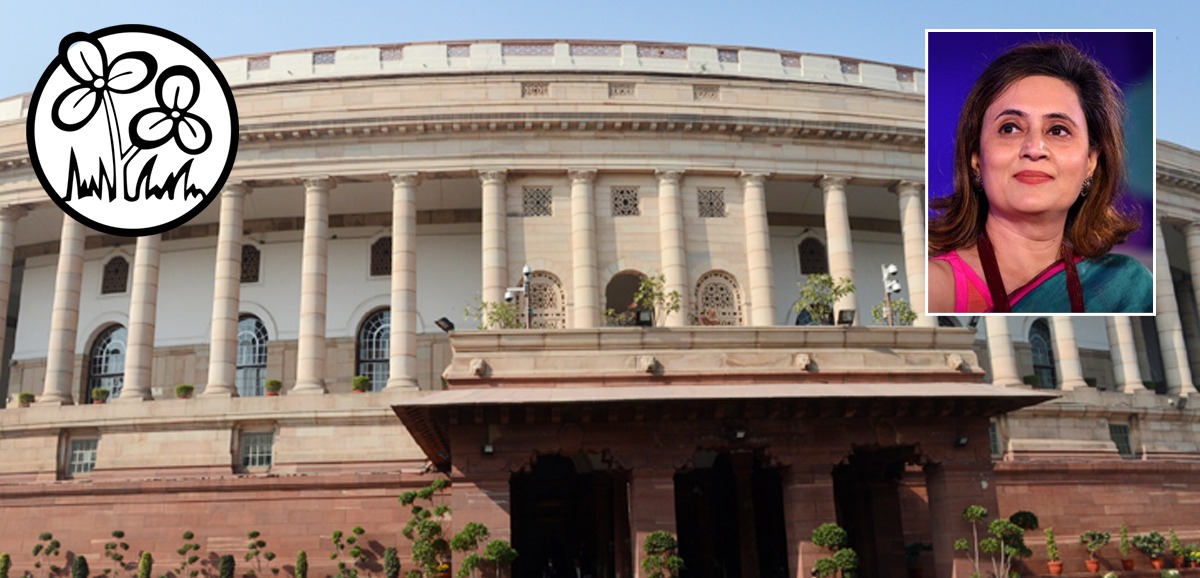Thank you very much, Chairman Sir. I am incredibly glad that the hon. Union Home Minister is here as well. Sir, ‘Discussion on the Union Home Ministry’ today is being initiated by the All India Trinamool Congress. And guess, Sir, who does Ms. Mamata Banerjee give the responsibility for initiating this discussion? She gives it to a 38-year-old MP who was thrown into jail Sir, in the last week, we have discussed four Ministries with the cooperation of the Government as well as the Opposition. Most of the questions of the Ministries of ‘Education’, ‘Railway’ and ‘Health’ went unanswered. The hon. Railway Minister even tried to pass a non-existent Railway Budget during his speech, but that is okay. I am glad that, at least, the discussions happened and they happened very smoothly. Sir, today we are discussing the Union Home Ministry in the Council of States. It is a very big deal because law and order is a State subject. It is not meant to be controlled by the Union Government. The role of the Home Ministry is confined to internal security, control of India’s borders and disaster management. The role of the Union Home Ministry is not to interfere with the law and order machinery of the State. Sadly, in the last 11 years, the Union Home Ministry has erased the distinction between the Government of India and the Republic of India. India is a Union of States, all of which together constitute the Republic. However, Sir, the Home Ministry today feels that the Union Government is the sole representative of the Republic and the States don’t mean anything. The Home Ministry today has become a force for battling against States and for any person who tries to disagree with the Union Government. The Home Ministry is like a Zamindar today, which treats States like its personal fiefdom, and anybody who opposes the Government is treated as an enemy of the nation. Certain small States sometimes are not able to stand up to this. But I will promise you, Sir, powerful States like West Bengal will always fight against this Zamindari mentality. Sir, I will give a little bit of background about how this Home Ministry functions and what is the problem, particularly, with respect to my State of West Bengal. In 2021, the Union Home Ministry passed a notification disregarding Parliament completely. The jurisdiction of the BSF on India’s internal borders used to be about 15 kilometres. With this notification, they enhanced the jurisdiction from 15 to 50 kilometres. ç� ह)R They did this in the Opposition-ruled States of West Bengal and Punjab. You increased the jurisdiction from 15 to 50 kilometres in Punjab and West Bengal. In Gujarat, on the other hand, Sir, which is BJP-ruled, the jurisdiction of the BSF was reduced from 80 kilometres to 50 kilometres. Inside the borders, it is the job of the State police, but, again, infringing on the rights of States, you have given that power to the BSF to control it. Sir, my State, West Bengal, is unique. We have the longest international border of any State in India. We also share our border with three countries, Nepal, Bhutan and Bangladesh. We are also gateway to the North-East. Anything that happens in these areas, any geopolitical tension, has a direct bearing on us. You would expect that the Union Home Ministry would want to work together with the State, give the State its dues. Sir, there is some data which I want to present here, which just shows how Bengal is being treated. In 2011-12, under the then UPA Government, Bengal received Rs. 44 crores under the Central Modernization Fund. Ten years later, in 2021-22, how much did Bengal get? Zero rupees. In 2013-14, Bengal got Rs. 59 crores. Ten years later, in 2023-24, zero rupees. Between 2020 and 2024, in four years, we should have got Rs. 160 crores by previous estimates. In these four years, we did not get a single rupee from the Union Government. Today, West Bengal has pending dues of Rs. 386 crores from the Union Home Ministry. Forget borders, forget internal security, I will talk about safety of women. I am sure that the hon. Home Minister is also concerned about that. The West Bengal Assembly unanimously passed the Aparajita Bill for the safety of women. That Bill has made its way to the President who will only give assent to it based on the advice of the Council of Ministers, the Union Home Ministry. That Bill is still stuck. We have repeatedly requested for it. It was unanimously passed by all parties, but no approval has been given. Sir, now I will come to my favourite bid because I have had a little bit of experience with this, the Central Agencies. Sure, under previous Governments, the Supreme Court has said that they are a ‘caged parrot’, etc, etc. But the BJP claims to be a party with a difference. So, we thought things would change. But nothing has changed in the last eleven years. .. For the benefit of the hon. Member, Sir, I am now going to read out the glorious record of the CBI. : I did not refer to the CBI or the ED. He is free to do that. Over 6,900 cases of corruption have been registered by the CBI… Over 6,900 cases of corruption registered by the CBI are pending trial. Over 361 corruption cases have been pending for more than 20 years… I am not yielding, Sir…. I am not yielding. I refuse to yield, Sir… Under the rules, I am allowed to refuse to yield. I am not going to yield to him. He can wait. All these things can be said in the reply, Sir. All right, Sir. I would skip CBI and ED and make just one thing clear. I am skipping it. Sir, this is not fair at all. Sir, this is absolutely not fair. Then I want my full 12 minutes to be started all over again. They can say their part. They interrupted me. Sir, I greatly respect you. I am Mamata Banerjee’s Let me now come to the NIA. That is your call…. I am not withdrawing it. . I have lost some of my time. Thank you so much. In 2013, a former Director of the Intelligence Bureau, under the previous Government, said that structural changes to the Intelligence Bureau have not happened since 1980s. At that time, he called for urgent legislative and structural changes to the functioning of the Intelligence Bureau to make it more independent. This was in 2013. That former Director of the Intelligence Bureau, Mr. Ajit Doval, became India’s National Security Advisor in 2014. He has been in that position for the last 11 years. These legislative and structural changes, that he wanted in 2013, we have not seen them happening in the last 11 years. The NIA was originally envisaged as an anti-terror agency. The NIA is busy now running its agendas in different States, locking up Indians for supposedly plotting against the Modi Government. An 83-year old man, a tribal welfare worker and a priest, Father Stan Swamy, we know how he died in prison; we know the story of being denied a straw. This is what the NIA does. Then, there is another very concerning issue which pertains to a lot of Members in the House on all sides. In 2021, there were independent investigations that raised allegations that the Union Government had planted an Israeli software called Pegasus for surveillance on phones of about 300 people, including Opposition leaders, Judges, politicians, Ministers, activists and journalists. My leader, Abhishek Banerjee, was one of those leaders. In 2022, the matter reached the Supreme Court. The Supreme Court had set up a Technical Committee to examine these allegations. There is something very interesting that the Committee told the Supreme Court. It said that through this entire investigation, the Union Government refused to co-operate with the Committee. If Pegasus was used legally, there should not have been any harm and there is no harm in admitting it. If it was used illegally, then, maybe that is the reason that they are hiding it. Otherwise, there is no reason to hide it from the Supreme Court Committee. Anyway, Sir, surveillance happens and agencies are used. Now, I want to come to a subject that rocked this country about four or five years ago, that is, the CAA and the NRC. The hon. Home Minister might remember that he made a very famous speech at that point before the Bill was introduced in the Parliament. He said, “आप क्रोनोलॉजी समझिए।
पहले सिटीजन अमेंडमेंट बिल आएगा और फिर एनआरसी लागू होगा। सिर्फ बंगाल में नहीं, पूरे देश में एनआरसी लागू होगा।” And, then he came to Bengal and said, “Illegal people will be thrown like termites into the Bay of Bengal.” This caused so much concern in India that his own Prime Minister, a few weeks later in the Ramlila Maidan, completely contradicted what he had said, and said, “No, there is no plan to bring a nationwide NRC.” Anyway, लोक सभा इलेक्शन के टाइम स्पीच दी थी। Eventually, in January, 2020, the Citizenship Amendment Act was notified. The CAA was brought in. It did not help them in the 2021 West Bengal Legislative Assembly elections. So, what did they do? Till last year 2024, that is, even after four years, the rules of the Bill were not issued. Now, if the hon. Minister, before bringing the Bill, had read the report of the Joint Parliamentary Committee, he would have found that the JPC had said that the CAA would benefit only 30,000 people. The Home Minister had claimed that lakhs of refugees would benefit. As of date, what is the reality? Only 350 people have been given citizenship under the CAA. No discussion on the Home Ministry can be complete without making a reference to Manipur. A debate on Manipur has happened in this House. My only point is that Manipur needed a healing touch. With whatever has happened in Manipur under the watch of the hon. Home Minister, I really do not know how he manages to sleep peacefully at night. In submission, I just want to say something very clear. This is purely very parliamentary. I could have said something else, but I will not. Very simply speaking, the Union Home Ministry is meant to be the Union Ministry of Home Affairs. It does not mean that Ministry आप घर से चलाओ। ‘Home’ does not mean ‘ghar’ here…. I do not need any extra time. I just have one parting note to say….. My conclusion, Sir, if I may be allowed to… Sir, multiple people have spoken longer than me. Sir, he called my speech… But you won’t expunge that. . I also object to that, Sir… Anyway, Sir, I want two sentences to conclude. Sir, just two sentences to finish off Only two sentences, Sir. This is my conclusion. You mentioned caste. You are talking about caste! . Anyway, I want to conclude, Sir, by saying only one thing. West Bengal elections are coming next year in 2026. The Union Home Ministry, if it does not drop this attitude, the BJP will become from the State of West Bengal. Thank you, Sir.
